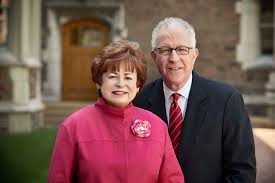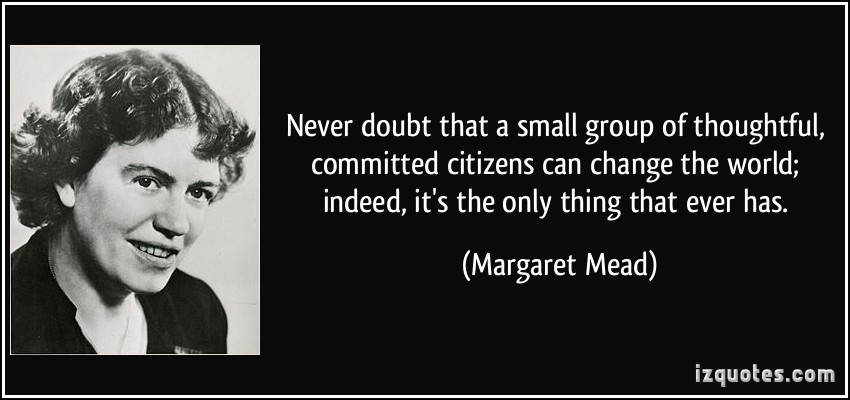
(2-20-18) What would you do if you won the lottery? Everyone has thought about it. Instant wealth. Travel the world first class? Buy multiple homes? Expensive cars? Indulge yourself with luxuries?
Maxine Clark and Bob Fox are two St. Louis, Mo., based philanthropists who are using their self-made wealth to dramatically help others, especially children. Maxine’s interest in kids should be no surprise. She’s the founder of Build-A-Bear Workshops! (Yes, my granddaughter has three stuffed animals from our local store.)
I was lucky to spend time with Maxine – (Bob was sick with the flu) – when I spoke recently at the Spirit of Provident Annual Gala, a fund raising event and celebration hosted by Provident, a mental health provider founded in 1860 by James Yeatman to help the sick and the poor in St. Louis. What you read is not a misprint. It was founded in 1860!
Provident was honoring Maxine and Bob at the gala, but the day before that event, the couple arranged for me to speak at the Clark-Fox Policy Institute at Washington University in St. Louis. My keynote was entitled Misguided and Misdiagnosed: Mental Health and the Criminal Justice System. After my speech, one of my favorite advocates, Susan W. McGraugh, a professor at Saint Louis University School of Law, who works with indigent, incarcerated clients, spoke eloquently about what services were available in St. Louis and what needed improvement. Later that night, Maxine hosted a private dinner for me with community leaders to discuss such topics as jail diversion, better police training, and affordable housing.
I explained that the first step is always for a community leader with clout (a judge, sheriff, or local official usually) to step forward and organize (force) all of those who have some connection with mental health/substance abuse (nearly everyone) to sit down at a table and find ways to collaborate. I said that night what I always say – that it is impossible to provide meaningful mental health services in your community unless you want to talk about supportive housing, job opportunities, easy access to mental health community services, transportation, specialized veterans programs, criminal justice reforms (such as jail diversion), helping children and giving people hope.
Much of what Provident does, according to Kevin Drollinger, is aimed at helping young people. This includes operating suicide hotlines that get a shocking amount of calls (in the many thousands) each year. But what really fascinated me was Provident’s after school program that serves more than 600 students. From 3:00 – 6:00 pm, they get a hot meal; tutoring; mentoring; and enriching activities such as dance instruction, karate, poetry and musical training. You can watch a video to get a better idea of what is done during their school programs.
 Although my book and most of my advocacy focuses on adults with serious mental illnesses and co-occurring issues that become entangled in our criminal justice system, I am learning more about mental illness/substance abuse/and serious emotional disturbances among young people. Studies have shown that the earlier we can help someone, the better the outcome.
Although my book and most of my advocacy focuses on adults with serious mental illnesses and co-occurring issues that become entangled in our criminal justice system, I am learning more about mental illness/substance abuse/and serious emotional disturbances among young people. Studies have shown that the earlier we can help someone, the better the outcome.
While I didn’t get to meet Bob, I did learn about the Mass Incarceration Community Education Initiative that he has funded through the Clark/Fox Family Foundation.
“The Mass Incarceration Community Education Initiative…seeks to inform the public and community leadership about the hidden system of mass incarceration. After extensive research we have mapped the ecosystem of Mass Incarceration in America. Our conclusion is that this system of oppression and its negative impact on children and their families our region, and the nation is perhaps the most critical issue of our time.”
If you visit the website , there is an interactive chart that you can click on to see how everything from school violence to the tough on crime – lock’em up – approach have contributed to mass incarceration.
One of the silver linings in my life is that I have been invited to speak in every state, except Hawaii, and in five foreign countries. This has given me the chance to visit more than a hundred treatment programs, countless jails, and to meet incredible advocates.
I am especially touched when I meet advocates who do not have a family member with mental illness but who care about mental health reform because they want their fellow Americans to live better lives. Bob, an entrepreneur who has founded several companies, and Maxine could have used their well-deserved wealth to pamper themselves. Instead, they have supported Teach For America and KIPP Charter Schools in St. Louis, funded a new Cardiac Intensive Care Unit at St. Louis Children’s Hospital, endowed the Chair of the Dean of the Goldfarb School of Nursing, established a professorship at Saint Louis University, and created the Clark-Fox Policy Institute and Forum at the Brown School of Social Work and Public Health at Washington University.
They are living examples of my favorite Margaret Meade quote:




